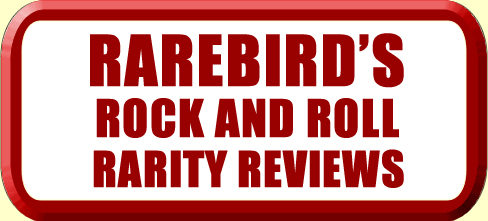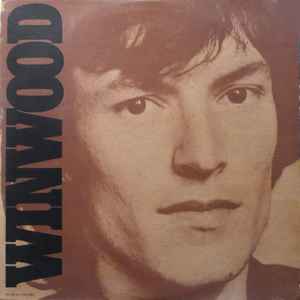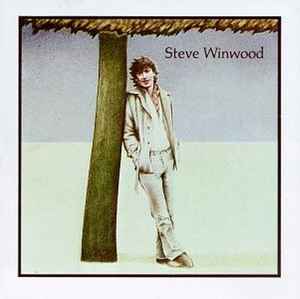

Steve Winwood began his career in the mid-'60's as the teenage singer/guitarist/keyboardist for the Spencer Davis Group, the blue-eyed soul band that gave us the classic "Gimme Some Lovin'". He possessed remarkable talent beyond his years, having first played in a band with his father at the age of eight. In 1967, Winwood felt a need to expand his musical horizons, and formed the eclectic jam band Traffic. That band blended various music forms -- rock, pop, r&b, jazz, psychedelia -- into its own unique sound. Winwood's career had a second wind in the '80's, when he became a chart-topping multi-platinum solo artist. His pop stardom faded at the end of that decade, but Winwood continues to perform to this day. His 2003 album About Time showed him making a surprising return to the jam-band sound of Traffic. A few recordings from his past, including some of his lesser-known '70's recordings, are now out of print.


Not to be confused with Winwood's 1977 solo debut (more on that later), the 1972 release Winwood was a 2-LP compilation of songs from Winwood's '60's groups, featuring seven songs from the Spencer Davis Group, twelve from Traffic (all of which predate the 1971 album The Low Spark Of High Heeled Boys), and one each from two supergroups that Winwood formed with Eric Clapton. A better song than "Sea Of Joy" probably could have been used to represent Blind Faith, but it's interesting to hear Robert Johnson's "Cross Roads" performed by Powerhouse. That group was another short-lived Clapton/Winwood project which only had three songs released on a 1967 Elektra Records sampler called What's Shakin'. Because we have since been spoiled by box sets, one could argue that this compilation could have used at least one more song apiece from Blind Faith and Powerhouse. But for a 1972 double-LP, Winwood was nearly as good an introduction to his pre-1971 work as anyone could have put together.
Track Listing:
Side One
1. KEEP ON RUNNING - Spencer Davis Group
2. SOMEBODY HELP ME - Spencer Davis Group
3. GOODBYE STEVIE - Spencer Davis Group
4. CROSS ROADS - Powerhouse
5. GIMME SOME LOVIN' - Spencer Davis Group
Side Two
1. I'M A MAN - Spencer Davis Group
2. CAN'T GET ENOUGH OF IT - Spencer Davis Group
3. STEVIE'S BLUES - Spencer Davis Group
4. PAPER SUN - Traffic
5. HEAVEN IS IN YOUR MIND - Traffic
6. COLOURED RAIN - Traffic
Side Three
1. DEAR MR. FANTASY - Traffic
2. SMILING PHASES - Traffic
3. DEALER - Traffic
4. MEDICATED GOO - Traffic
5. FORTY THOUSAND HEADMEN - Traffic
6. VAGABOND VIRGIN - Traffic
Side Four
1. SEA OF JOY - Blind Faith
2. EMPTY PAGES - Traffic
3. STRANGER TO HIMSELF - Traffic
4. FREEDOM RIDER - Traffic

In 1973, while Winwood was on hiatus from Traffic due to illness, he took part in a reggae trio called The Third World. It was a one-off project, not to be confused with the better-known, long-running reggae band of the same name. His two collaborators were African musicians Remi Kabaka (who had played with Winwood in Ginger Baker's Air Force) and Abdul Lasisi Amao (a founding member of the African worldbeat group Osibisa). Their one and only album Aiye-Keta was produced by Winwood, who also played keyboards, lead guitar, and moog synthesizer. The lead vocals were done by Kabaka (who wrote all of the songs), but the album is mostly instrumental. The reggae sound is relatively spare, while Winwood's spacey keyboards add a fairly predictable Traffic-like flavor. Aiye-Keta is listenable but unsurprising. "Irin-Ajo" is the high point. Note: some later printings of the album gave artist billing to the three members instead of to Third World, possibly to avoid confusion with that other band.
Track Listing:
1. Happy Vibes
2. Irin-Ajo
3. Black Beauty
4. Afro Super
5. Shango

In 1976, about two years after the demise of Traffic, Winwood was involved in the Go project, an amalgam of diverse musicians brought together by the Japanese jazz artist Stomu Yamashta. The Go album gives front cover billing to Yamashta, Winwood, and Michael Shrieve (the original drummer for Santana). Other musicians involved with this progressive rock opus included Al DiMeola, Klause Schulze, and Pat Thrall among others. It's a dreamy, cosmic concept album about space travel, built mainly on Yamashta's string synthesizers and percussion. Winwood provides the lead vocals on the six non-instrumental tracks. Winwood wrote the closing track "Winner/Loser"; the rest where written by Yamashta and lyricist Michael Quartermain. Each album side contains seven tracks, which (except for that Traffic-like closing track) flow together in classical fashion. The dense space-themed music is both unique and accessible, though the first side holds together better than the second. A good find.
Go - Live From Paris is a recording of a live performance of the album at the Palais Des Sports in Paris on June 12th, 1976. As a result of extended jams, this is a double album, where the studio album only consisted of one LP. It was performed by an ensemble of nine musicians, including the six mentioned in the previous paragraph. The music doesn't lose a bit of its atmosphere in this setting, but it does naturally sound a bit more earthy, especially the guitar sound. It's fascinating to hear these very different musicians work so well together. This is music you can get lost in. Note: Yamashta and company did record a second Go studio album titled Go Too in 1977, but Winwood was not involved with it.
Track Listings:
GO
1. Solitude (2:57)
2. Nature (2:32)
3. Air Over (2:32)
4. Crossing The Line (4:46)
5. Man Of Leo (2:02)
6. Stellar (2:53)
7. Space Theme (3:12)
8. Space Requiem (3:20)
9. Space Song (2:00)
10. Carnival (2:46)
11. Ghost Machine (2:06)
12. Surfspin (2:25)
13. Time Is Here (2:46)
14. Winner/Loser (4:10)
GO - LIVE FROM PARIS
1. Space Song (2:30)
2. Carnival (1:12)
3. Wind Spin (9:30)
4. Ghost Machine (3:45)
5. Surfspin (2:20)
6. Time Is Here (9:20)
7. Winner/Loser (5:10)
8. Solitude (2:00)
9. Nature (4:25)
10. Air Voice (1:10)
11. Crossing The Line (7:50)
12. Man Of Leo (15:30)
13. Stellar (1:25)
14. Space Requiem (3:35)


Winwood's self-titled 1977 solo debut is a surprisingly laid-back effort that catches him right smack in the middle of the transition between his '60's and '80's sounds. Four of the six semi-lengthy songs were co-written by Winwood and ex-Traffic drummer Jim Capaldi; those songs are vaguely reminiscent of the 1970 Traffic album John Barleycorn Must Die (which, by the way, was originally intended to be Winwood's first solo album). The other two songs ("Midland Maniac", "Vacant Chair") bear more resemblance to his next album, 1980's Arc Of A Diver. This album doesn't measure up to either of those two; it's too unfocused and uneven to hit the bullseye. Still, the three songs on Side One are likable in a relaxing sort of way.
Track Listing:
1. Hold On -- (Winwood/Capaldi)
2. Time Is Running Out -- (Winwood/Capaldi)
3. Midland Maniac -- (Winwood)
4. Vacant Chair -- (Winwood/Stanshall)
5. Luck's In -- (Winwood/Capaldi)
6. Let Me Make Something In Your Life -- (Winwood/Capaldi)

The '80's turned out to be a prosperous decade for Winwood. His splendid 1980 album Arc of a Diver redefined his career, transforming him into a contemporary pop entertainer. Many of his songs from that decade were co-written by Winwood and professional pop songwriter Will Jennings (who has co-authored many smash hits from movie soundtracks and the like).
Talking Back To The Night was the 1982 follow-up to Arc Of A Diver. For this album, Winwood basically distilled the simpler pop elements from its predecessor, co-writing all nine of the tracks with Jennings. This album is highlighted by the sublime single "Valerie" (before it was remixed for the 1987 Chronicles compilation), and three other songs ("Still In The Game", "Help Me Angel", the title track) that come close to duplicating the previous album's blue-eyed soul magic. Tracks 2 through 4 are pleasant though typical examples of early-'80's synth-pop. The low points of Talking Back To The Night are two labored ballads ("It Was Happiness", "There's a River") that almost weigh it down toward the end.
Track Listing:
1. Valerie
2. Big Girls Walk Away
3. And I Go
4. While There's a Candle Burning
5. Still In The Game
6. It Was Happiness
7. Help Me Angel
8. Talking Back To The Night
9. There's a River

In the second half of the '80's, Winwood's success reached multi-platinum heights. Unfortunately, the 1990 album Refugees Of The Heart suggested that he was taking pop stardom for granted, as he was settling much too comfortably into adult contemporary dullness. With the exception of one songwriting/recording collaboration with Jim Capaldi (the standout "One And Only Man"), Winwood co-wrote the other seven songs with Jennings. Those songs suffer from a sterile, high-polish presentation that waters down Winwood's musicianship. "Another Deal Goes Down" and "Come Out And Dance" contain flickers of the energy that was found on his '80's albums, but not enough. "I Will Be Here" isn't bad as far as mushy romantic ballads go, but that is surely nothing to brag about. Refugees Of The Heart was Winwood's one-way ticket out of the commercial high life, although his '80's hits still receive prominent airplay on classic rock and adult contemporary radio stations.
Track Listing:
1. You'll Keep On Searching
2. Every Day (Oh Lord)
3. One And Only Man
4. I Will Be Here
5. Another Deal Goes Down
6. Running On
7. Come Out And Dance
8. In The Light Of Day
Home